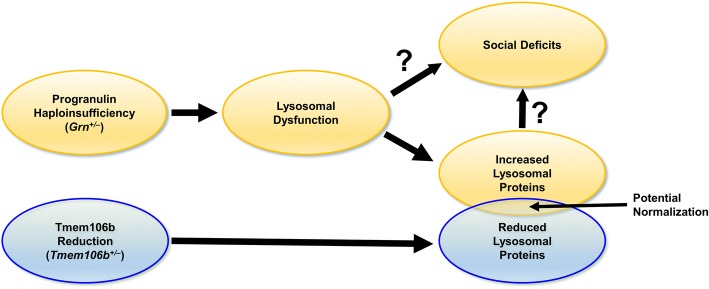Fig. 6.
Proposed Model of the Effects of Progranulin and Tmem106b in Grn+/−:Tmem106b+/− Mice. The current study and others [35], indicate that Tmem106b reduction in progranulin insufficient mice normalizes some lysosomal abnormalities induced by progranulin insufficiency, but fails to rescue the most abnormalities caused by progranulin insufficiency. In this model, progranulin insufficiency causes lysosomal dysfunction, which may then cause the social deficits of Grn+/− mice. In addition, levels of many lysosomal proteins are increased, probably as a result of increased lysosomal gene expression via transcription factor EB. This increase in lysosomal proteins may also contribute to social behavior deficits, or may be a parallel phenomenon resulting from the underlying lysosomal dysfunction. In contrast, Tmem106b reduction suppresses the expression of many lysosomal genes (Figs. 3, 4 and [35]). Genes affected by both progranulin insufficiency and Tmem106b reduction, such as Gusb (Fig. 3d, h), may have normalized activity in Grn+/−:Tmem106b+/− mice, but lysosomal dysfunction and social deficits remain intact in Grn+/−:Tmem106b+/− mice

